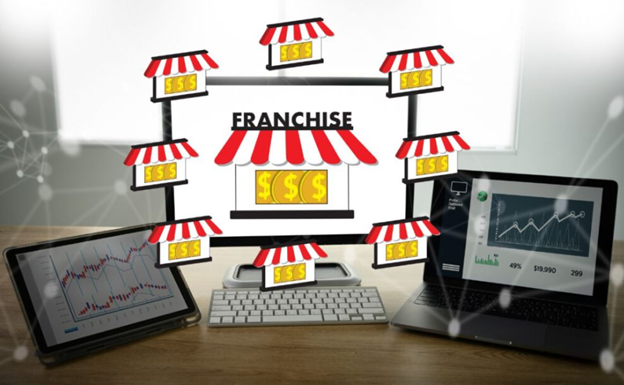How Franchise Insurance Can Safeguard Your Bottom Line

Investing in a brand is an additional cost when you enter the world of business ownership, in addition to a product or service. It takes a thorough insurance plan to navigate such waters, one that can safeguard both your franchise and the brand’s overall reputation. We’ll discuss why franchise insurance is a crucial component of managing a profitable franchise business in this comprehensive guide, along with strategies for keeping your financial line as stable as your aspirations for expansion.
Learning The Fundamentals of Franchisee Insurance
To meet the particular requirements of franchise business models, franchise insurance is a special type of commercial insurance. This normally entails a mix of insurances, such as property insurance, general liability insurance, and covering for particular problems that might be exclusive to your franchisor’s sector.
Insurance for franchises serves the primary function of shielding franchisees from the various hazards that could lead to monetary loss and harm to their brand’s reputation. The company’s property can pose a risk due to several reasons such as interactions with clients, work-related tasks, and mishaps.
Customised Reporting for a Specialised Industry
Insurance for franchise business models must be customised to each franchise’s unique requirements and structure. This frequently means that coverages have to adhere to industry regulations as well as any legal obligations established by the franchisor. Furthermore, the policy must consider the unique operational procedures of the franchise, which can range greatly throughout various franchise sites.
Selecting the Proper Insurance for Your Franchise
It’s a complex process that calls for considerable thought and a complete awareness of the dangers involved in selecting the best insurance coverage for your business. The following are the primary coverage options your franchise should think about:
Safety of Your Assets and Property
Both the contents and the actual building of your company are covered by property insurance. This might also cover commercial auto insurance for any vehicles utilised in the business for franchises with larger operations. You should confirm that your policy provides coverage for potential risks including theft, vandalism, fire, and natural catastrophes.
Coverage for General Liability
Irrespective of the industry, all franchises require general liability insurance. It covers any harm that may result from a product or service the company provides to clients or staff while they are on the premises, in addition to any property damage.
Insurance for “Key Employee” or “Key Person”
Certain individuals hold a pivotal position in the functioning and prosperity of the enterprise for certain franchises. If a vital person passes away or is disabled and is unable to continue contributing to the company, key person insurance offers financial support.
Using Compliance to Reduce Risk
Even with the best insurance policies, there is always a certain amount of danger. Ensuring the safety of your franchise can be achieved through proactive risk management. This comprises:
Recording Guidelines and Practices
A comprehensive set of policies and procedures, along with training for all staff members, are among the greatest approaches to prevent liability problems.
Preserving a secure atmosphere
You can lower your company’s risk of mishaps and future lawsuits by maintaining your property safely and well.
Frequent evaluations of risks
To find and mitigate such risks before they become incidents that could harm your business, do frequent assessments.
Protecting while Making a Profit
The cost of franchise insurance might vary greatly due to the large number of coverage options that are offered. Achieving an equilibrium between your financial capacity and your need for security is crucial when purchasing insurance. Remember that even while comprehensive coverage may seem expensive, the expense of being underinsured may far exceed the cost of insurance in the event of a significant claim.
Evaluating Risks’ Real Cost
To choose the right amount of coverage, take into account the kinds of claims that are most likely to happen in your sector as well as their possible expenses. This will assist you in setting your protection needs in order of importance.
Collaborating with a Skilled Broker
It might be quite beneficial to work with a broker that knows franchising companies. They can assist you in navigating the complexities of many insurance plans and locating the greatest coverage at a reasonable cost.
Examining and Modifying
The expansion and development of your franchise will affect your insurance needs. To make sure your coverage stays sufficient, evaluate your plans regularly and make any necessary adjustments.
Using Franchise Insurance as a Marketing Tool
Franchise insurance has the potential to be an effective marketing tool in addition to providing protection. You may gain the confidence of stakeholders and customers by proving that your franchise is well-insured and ready for any situation.
Explaining Your Coverage
Make sure you are open and honest about the insurance you have. Share this information with your employees, clients, and other business partners to show them how committed you are to security and responsibility.
Showcasing Your Commitment to Quality
Insurance is a symbol of your commitment to operating a top-notch, ethical company as well as your desire for financial security. This is a powerful selling feature, especially in markets with fierce competition.
Final Verdict
The protection of your company and reputation is greatly enhanced with franchise insurance, so remaining proactive, and adaptable is essential to paving the way ahead. It’s critical to regularly update your insurance policies and risk management plans to reflect how your company and industry are changing. As your franchise expands, work with your insurance company to customise your coverages. Additionally, building a culture of safety and compliance within your team not only reduces possible hazards but also improves your company’s overall resiliency.


 Customised Facilities Management Solutions: Tailoring Services to Meet Industry-Specific Needs
Customised Facilities Management Solutions: Tailoring Services to Meet Industry-Specific Needs  Professional photography company helps in marketing
Professional photography company helps in marketing  Top Training Courses to Boost Employee Performance in Australia
Top Training Courses to Boost Employee Performance in Australia  Need Seamless HR Integration? Find the Best Onboarding Software!
Need Seamless HR Integration? Find the Best Onboarding Software!  The Precision and Efficiency of the Ball Screw BLK by THK
The Precision and Efficiency of the Ball Screw BLK by THK  OP Service Korea: Providing Outstanding Services to the Suwon Community
OP Service Korea: Providing Outstanding Services to the Suwon Community